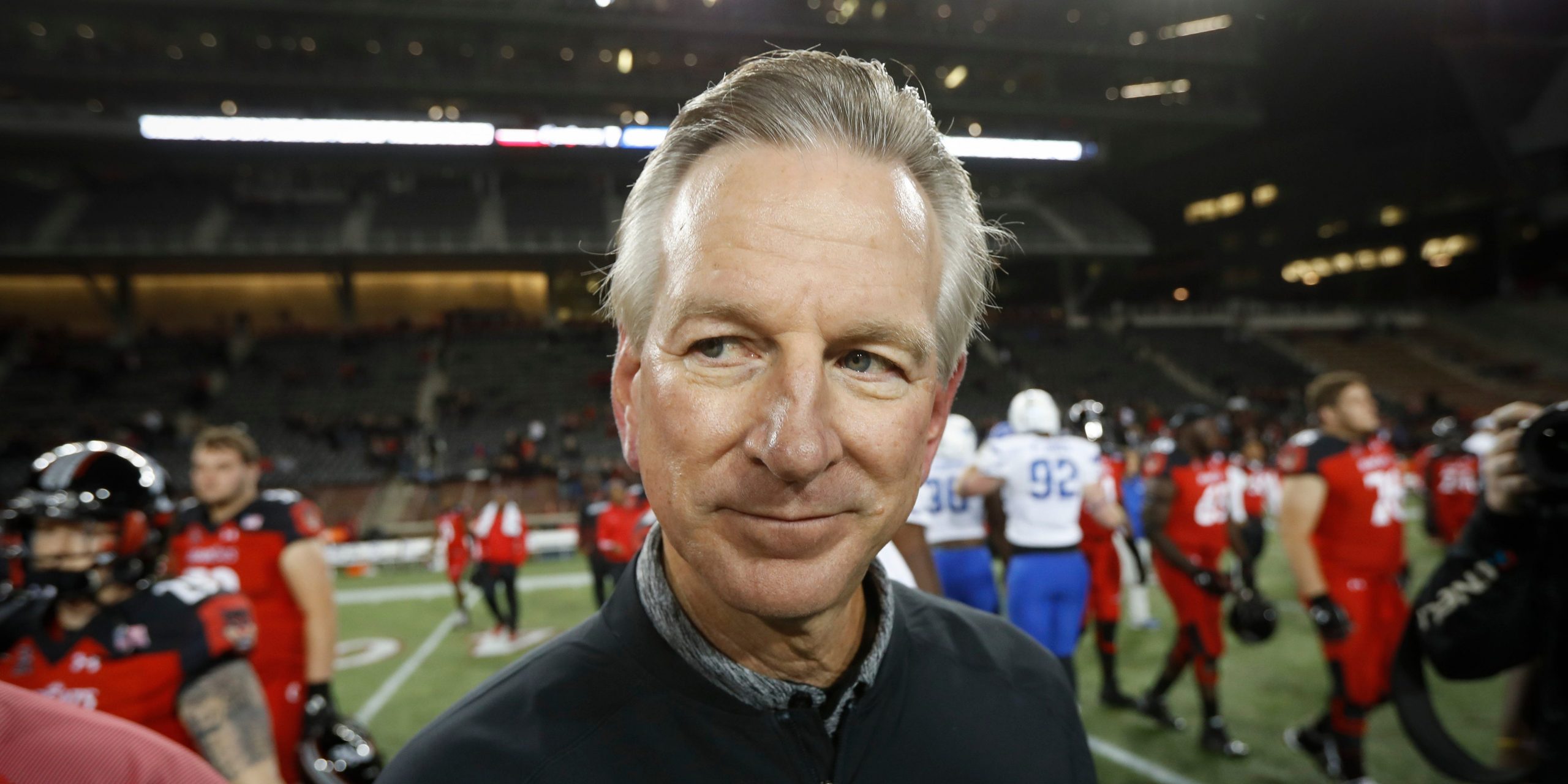- Sen. Doug Jones, the lone Democratic Senator from the Deep South, is running for a full term against Tommy Tuberville in Alabama.
- Jones narrowly won a December 2017 special election to replace former Sen. Jeff Sessions, but now faces much tougher odds.
- Tuberville, a former Auburn University football coach, has earned President Donald Trump’s endorsement, and easily defeated Sessions in a July runoff.
- Visit Business Insider’s homepage for more stories.
Sen. Doug Jones, the lone Democratic Senator from the Deep South, is running for a full term against former Auburn University football coach Tommy Tuberville.
The candidates:
Jones, a former federal prosecutor, narrowly defeated scandal-plagued Republican candidate Roy Moore in a hotly-contested December 2017 special election to replace former Sen. Jeff Sessions, who left the seat to become Trump’s attorney general.
He is possibly best-known for successfully prosecuting the four white supremacists responsible for bombing a church and killing four girls in Birmingham, Alabama in 1963.
Moore had previously been twice expelled from the Alabama Supreme Court for refusing to remove a monument to the Ten Commandments from the courthouse’s grounds in defiance of a court order, and for refusing to recognize the 2015 Supreme Court decision establishing the legality of same-sex marriage nationwide.
In addition to a long history of making Islamaphobic, homophobic, and racist comments, a number of explosive news reports revealed that several women accused Moore of sexually harassing or abusing them when they were teenagers in the 1980s and 90s.
Tuberville, who has previously coached for Auburn University and the University of Cincinnati, defeated Sessions by a 20-point margin in the July 14 primary runoff to officially become the GOP nominee.
A political newcomer, Tuberville ran his campaign largely on a platform on standing in lockstep with Trump. And partly thanks to Trump's complicated and fraught history with Sessions, he earned Trump's powerful endorsement in the runoff.
The stakes:
In addition to winning back the White House, regaining control of the US Senate for the first time since 2015 is a top priority for Democrats and would be a major accomplishment towards either delivering on a future president Joe Biden's policy goals or thwarting Donald Trump's second-term agenda.
Currently, the US Senate is made up of 53 Republicans, 45 Democrats, and two independents that caucus with Democrats, winning that Democrats need to win back a net total of four seats to have a 51-seat majority (if Biden wins, his vice president would also serve as president of the Senate and would be a tie-breaker vote).
Alabama's Senate race is a rare bright spot in an otherwise tough campaign year for Senate Republicans.
Jones pulled off a miracle with his 2017 win, and faces a much tougher path to re-election than he did three years ago now running in a presidential election year with Trump at the top of the ticket and with far less help from outside groups.
And while college football certainly inspires heated debate in Alabama, Tuberville is a much more formidable opponent thanks to Trump's endorsement, having no legislative record to attack, and importantly, not facing any major scandals or accusations of sexual misconduct.
The money race: Jones has amassed a sizeable cash advantage over Tuberville, who only won his runoff in July. Jones has raised $14.3 million so far this cycle, spent $7.6 million, and has $8.7 million in cash on hand, according to the Center for Responsive Politics, while Tuberville has raised nearly $3.4 million, has spent $2.8 million, and has around $551,000 in cash on hand.
What the polling says: The most recent poll of the race conducted by Morning Consult from July 24-August 2 found Tuberville leading Jones by 17 points, 52% to 35%. Another survey conducted by Republican firm WPA Intelligence found Tuberville leading Jones by 10 percentage points, 50% to 40%.
What experts say: The Cook Political Report and Inside Elections rate the race lean Republican while Sabato's Crystal Ball at the University of Virginia Center for Politics rates it likely Republican.

